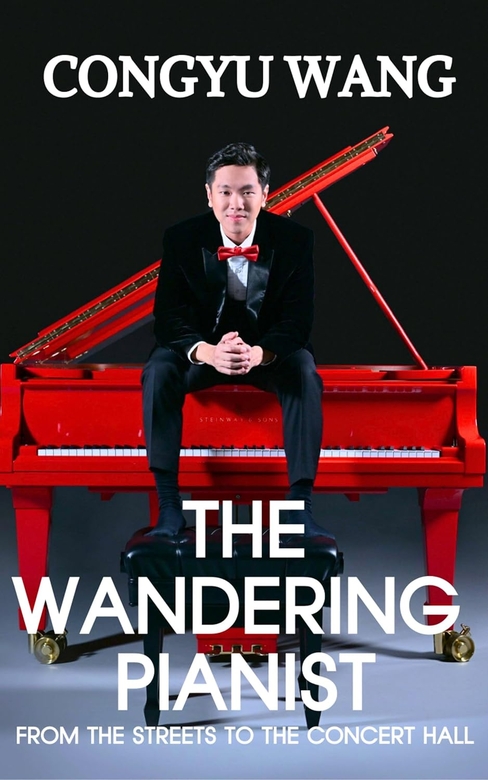
Heartwrenching, humanistic, and beautifully told, The Wandering Pianist: From the Street to the Concert Hall by Congyu Wang is a humbly penned memoir that grips the imagination and offers renewed hope to artists and lost souls alike.
Swimming smoothly through time, the narrative weaves tales of Wang’s upbringing and childhood challenges with the humbling successes of his later life and moments of desperation along the way. From the humblest of beginnings to the grandest stages of Europe, Congyu demonstrates a remarkable belief in himself and a relentless determination to persevere. Despite facing doubt and derision from his family, as well as impoverishment on foreign streets in the pursuit of his dreams, Congyu seems imbued with a faith that transcends everyday optimism.
Unlike so many stories of rags to riches – or anonymity to celebrity – the author didn’t demonstrate a prodigious aptitude for his chosen field at a young age. He describes himself as a somewhat average child, without apparent natural gifts, who had to overcome the trauma of grief and the emotional baggage of an absent father. Even with the challenges he faced, the piano always spoke to him, and while he was less than an ideal student, his determination to become a master remained unwavering, illustrating that anyone can reach their goals, no matter their environment or initial promise.
The temerity and drive of this young pianist to conquer self-doubt and all known laws of probability make for a wonderful read, accented as it is with humor, wisdom, and refreshing honesty. The author is a vulnerable and detailed storyteller, taking readers through the many embarrassing, painful, and revelatory moments that finally led him to the concert stage. His escapades after embarking on an education in Paris make up perhaps the most enjoyable sections of the book, where his personality, joy, and sense of discovery shine through more vividly. His unadulterated experience of Paris, from the romantic expectations to the brutal realities, gives readers a portrait of that city that echoes the reflections of other great artists. His day-to-day struggles aren’t particularly embellished with lavish prose, but there is a gritty realism that effectively conveys the unpredictability of that period in the author’s life.
On the technical side, the writing sometimes lacks editorial consistency; certain passages feel meticulously polished, with each word placed carefully, while others are peppered with awkward syntax, requiring a second reading of the sentence. There is also some room for narrative trimming to maintain a solid pace to the writing, as the author has the tendency to start off on short descriptive tangents that don’t contribute to the storyline and can be distracting, particularly after the first few chapters of general exposition. The matter-of-factness of the prose could also be mistaken for coldness; the author is clearly an emotionally connected person, so the declarative tone sometimes clashes with the intensity of certain moments.
Despite these superficial critiques, this is a stunning memoir, a testament to self-determination, and a reminder that having a dream is the first step towards reaching it, for a singularly uplifting story that shows how artistic devotion can thrive anywhere.
Book Links
STAR RATING
Design
Content
Editing
Get an Editorial Review | Get Amazon Sales & Reviews | Get Edited | Get Beta Readers | Enter the SPR Book Awards | Other Marketing Services























Leave A Comment